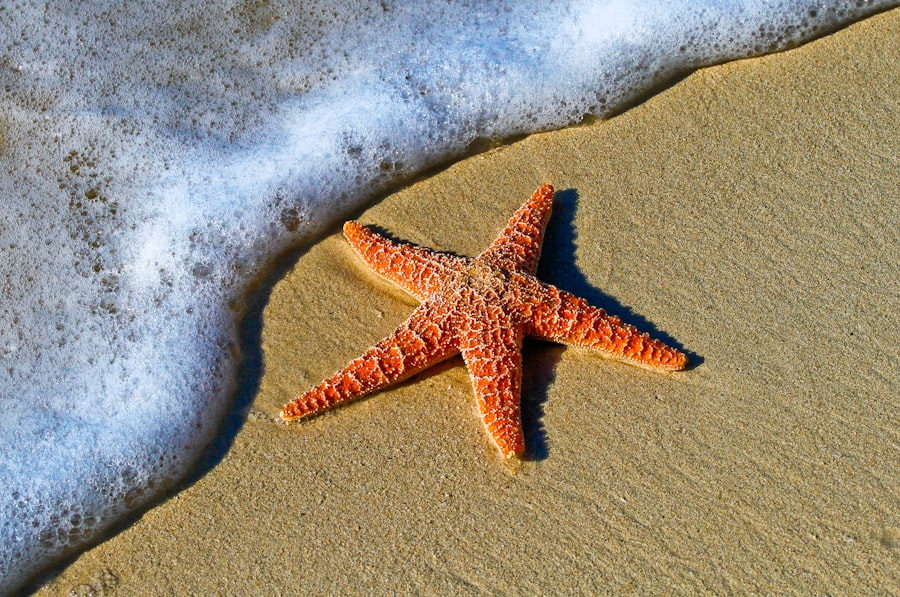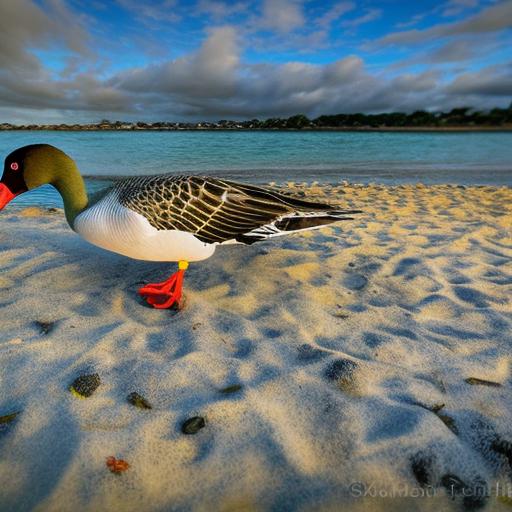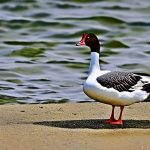Geese can be a beautiful sight on the beach, but they can also cause a lot of problems. From their droppings to their aggressive behavior, geese can make it difficult for beachgoers to enjoy their time in the sun. That’s why it’s important to manage geese on your beach to ensure a safe and clean environment for everyone.
Key Takeaways
- Geese can be a problem on your beach, causing damage to the ecosystem and creating safety hazards.
- Understanding the behavior of geese and why they are attracted to beaches can help in developing effective management strategies.
- Geese can negatively impact the beach ecosystem by overgrazing, contaminating water, and damaging vegetation.
- Physical barriers, decoys, sound deterrents, and natural methods can be used to keep geese off your beach.
- Regular maintenance and clean-up are important to discourage geese, and working with local authorities and wildlife experts can help in managing geese on your beach.
Understanding the behavior of geese
Geese are attracted to beaches for a variety of reasons. One of the main reasons is the availability of food. Beaches often have grassy areas where geese can graze, as well as nearby bodies of water where they can find insects and small fish to eat. Additionally, beaches provide open spaces where geese can rest and socialize.
Geese are social animals and tend to gather in large groups called flocks. They have a strong sense of community and will often return to the same location year after year. Geese are also known for their aggressive behavior, especially during nesting season when they are protecting their eggs and young. This can make it difficult for beachgoers to enjoy their time on the beach.
The negative impact of geese on your beach
Geese can have a negative impact on your beach and its ecosystem in several ways. One of the biggest issues is their droppings, which can be unsightly and unsanitary. Geese produce a large amount of waste, and their droppings can contain harmful bacteria that can contaminate the water and soil.
In addition to their droppings, geese can also damage vegetation on the beach. They graze on grasses and other plants, which can lead to erosion and loss of habitat for other species. Geese can also be aggressive towards other birds and animals, disrupting the natural balance of the ecosystem.
Physical barriers to keep geese off your beach
One effective way to manage geese on your beach is to use physical barriers. There are several types of barriers that can be used, including fences, netting, and hedges. Fences can be installed around the perimeter of the beach to prevent geese from entering. Netting can be placed over grassy areas to prevent geese from grazing. Hedges can be planted to create a natural barrier that geese are less likely to cross.
Each type of barrier has its pros and cons. Fences are effective at keeping geese out, but they can be expensive to install and maintain. Netting is a more affordable option, but it may not be as effective at keeping geese away. Hedges are a natural and aesthetically pleasing option, but they take time to grow and may not provide immediate results.
Using decoys and other visual deterrents
Another method for managing geese on your beach is to use decoys and other visual deterrents. Decoys are life-like replicas of predators, such as coyotes or owls, that can scare geese away. Other visual deterrents include reflective tape, scarecrows, and balloons.
Decoys should be placed strategically around the beach to create the illusion of a predator presence. They should be moved regularly to prevent geese from becoming accustomed to their presence. Reflective tape can be hung from poles or fences to create movement and scare geese away. Scarecrows and balloons can also be effective at deterring geese, as they create a visual disturbance that makes geese feel unsafe.
Using sound deterrents

Sound deterrents can also be effective at keeping geese off your beach. There are several types of sound deterrents available, including propane cannons, sonic devices, and recorded distress calls. Propane cannons produce loud noises that mimic the sound of a gunshot, scaring geese away. Sonic devices emit high-frequency sounds that are unpleasant to geese. Recorded distress calls can also be effective, as they mimic the sound of a distressed goose and can deter other geese from approaching.
When using sound deterrents, it’s important to consider the impact on other beachgoers and wildlife. Propane cannons can be loud and disruptive, so they should be used sparingly and during non-peak hours. Sonic devices should be placed strategically around the beach to create a barrier of sound. Recorded distress calls should be played at regular intervals to maintain their effectiveness.
Natural ways to discourage geese
There are also natural ways to discourage geese from your beach. One method is to plant native vegetation that geese find unappealing. Geese prefer grassy areas with short, tender grass, so planting taller grasses or shrubs can deter them from grazing. Additionally, creating a buffer zone between the beach and nearby bodies of water can discourage geese from congregating on the beach.
Another natural deterrent is the use of dogs. Geese are naturally afraid of dogs and will avoid areas where they are present. By allowing dogs on your beach, you can create a natural deterrent that will keep geese away. However, it’s important to ensure that dogs are well-behaved and under control at all times.
The importance of regular maintenance and clean-up
Regular maintenance and clean-up are essential for discouraging geese from your beach. Geese are attracted to areas with abundant food sources, so it’s important to remove any food scraps or garbage from the beach. This includes emptying trash cans regularly and cleaning up any spilled food or drinks.
In addition to clean-up, it’s also important to maintain the beach and its vegetation. Regular mowing and trimming can prevent grasses from becoming too short and tender, which can attract geese. Removing invasive plant species can also help create a less appealing habitat for geese.
Working with local authorities and wildlife experts
Managing geese on your beach may require the assistance of local authorities and wildlife experts. They can provide guidance and support in implementing effective management strategies. Local authorities may have regulations or guidelines in place for managing geese, so it’s important to familiarize yourself with these regulations and follow them accordingly.
Wildlife experts can provide valuable insight into the behavior and habits of geese, as well as recommend specific management techniques. They may also be able to assist with the installation of physical barriers or the use of deterrents. It’s important to establish a good working relationship with these experts and communicate regularly to ensure the success of your geese management efforts.
Conclusion and tips for successful geese management
Managing geese on your beach can be a challenging task, but with the right strategies and techniques, it can be done successfully. By understanding the behavior of geese, implementing physical barriers, using decoys and visual deterrents, employing sound deterrents, utilizing natural methods, maintaining the beach, and working with local authorities and wildlife experts, you can create a safe and enjoyable environment for beachgoers.
Remember to regularly assess the effectiveness of your management strategies and make adjustments as needed. Geese are intelligent animals and may adapt to certain deterrents over time. By staying proactive and vigilant, you can ensure that your beach remains free from the negative impact of geese.
If you’re looking for effective ways to keep geese off your beach, you might also be interested in learning about large chicken coop ideas. Having a well-designed and spacious coop can not only provide a comfortable living space for your chickens but also serve as a deterrent for geese and other unwanted visitors. Check out this informative article on poultrywizard.com for some creative and practical ideas to keep your beach goose-free.
FAQs
What are the reasons for keeping geese off your beach?
Geese can cause damage to the beach ecosystem, leave behind droppings that can be unsanitary, and pose a potential safety hazard to beachgoers.
What are some effective ways to keep geese off your beach?
Some effective ways to keep geese off your beach include using decoys, installing fencing or netting, using noise deterrents, and planting vegetation that geese do not like.
What are some natural ways to keep geese off your beach?
Some natural ways to keep geese off your beach include planting vegetation that geese do not like, using natural predators such as dogs or hawks, and using water deterrents such as sprinklers or water guns.
Is it legal to harm or kill geese to keep them off your beach?
No, it is not legal to harm or kill geese to keep them off your beach. Geese are protected under federal law, and there are humane ways to deter them from your beach.
What should I do if I encounter an injured or sick goose on my beach?
If you encounter an injured or sick goose on your beach, it is best to contact a local wildlife rehabilitation center or animal control agency for assistance. Do not attempt to handle the goose yourself, as they can be aggressive and may cause harm.
Meet Walter, the feathered-friend fanatic of Florida! Nestled in the sunshine state, Walter struts through life with his feathered companions, clucking his way to happiness. With a coop that’s fancier than a five-star hotel, he’s the Don Juan of the chicken world. When he’s not teaching his hens to do the cha-cha, you’ll find him in a heated debate with his prized rooster, Sir Clucks-a-Lot. Walter’s poultry passion is no yolk; he’s the sunny-side-up guy you never knew you needed in your flock of friends!







